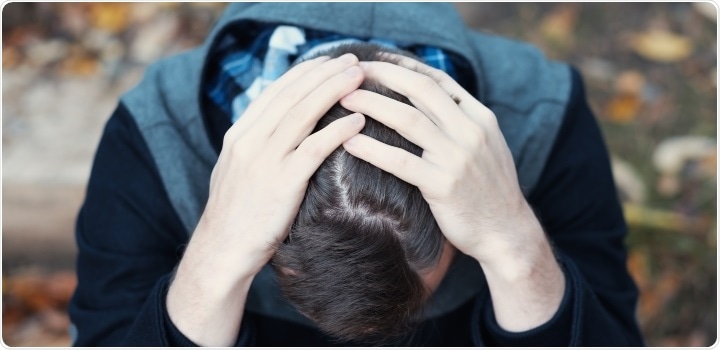The first wave of the Covid-19 pandemic saw more people suffer mental health problems in the UK – according to new research from the University of East Anglia and the University of York.

Image Credit: University of East Anglia
New research published today reveals that the amount of people suffering some form of psychological distress rose by almost 50 per cent during the peak of the pandemic’s first wave in April 2020, compared to 2019 figures.
The prevalence of psychological distress increased from 19 per cent in 2019 to 28 per cent in April 2020.
The study also shows that the distribution of mental health problems within the population became more unequal during the first wave of the COVID-19 outbreak.
But the study, which follows people’s experience over time, shows that levels of psychological distress had moved back towards pre-pandemic levels by the end of the first wave in July 2020.
We wanted to see how the Covid-19 pandemic has affected people’s mental health, to find out whether the impact has been greater among people in more disadvantaged circumstances, and to see how metal health changed as the first wave of the pandemic progressed.”
Dr Apostolos Davillas, Norwich Medical School, UEA
Researchers studied data from the UK Household Longitudinal Study (UKHLS), which launched a Covid-19 survey to examine the impact of the coronavirus pandemic.
They looked at levels of socioeconomic inequality and psychological distress in 2019, before the pandemic hit, and during the first wave of the Covid-19 outbreak between April and July 2020. The study included 8,222 participants.
They studied twelve indicators including things like not being able to concentrate, make decisions, or enjoy day-to-day activities, experiencing sleep problems and feelings of depression and worthlessness.
Dr Davillas said: “What we found is that many people’s mental health suffered during the first wave of the Covid-19 pandemic.”
“In particular, we found that people’s ability to enjoy day-to-day activities and play a useful role were most impacted, along with concentration problems and being unhappy.
“We already knew that Covid-19 had caused more than 20,000 deaths in the UK at the peak of the first wave so there was an obvious impact already on wellbeing.”
“Many people faced financial hardship, the stress of having children at home, isolation, and it all had an impact on the mental health of the nation.”
“We found that the total inequality in mental health increased during the first wave of the Covid-19 outbreak in the UK.
“Compared to 2019, the dispersion of mental health problems within the population became about 20 per cent more unequal at the peak of the first wave in the UK in April 2020. It seems that the burden of this psychological distress was unequally distributed within the population during the first wave of the Covid-19 outbreak.”
“But our study also found some surprising results. Although the total inequality in mental health increased during the pandemic compared to 2019, pre-existing individual socioeconomic circumstances - such as housing conditions, employment, income, education and parental occupation - did not play a larger role in explaining the observed inequality.
“Also, much of the change in the pattern of psychological distress had dissipated towards the end of the first wave in July 2020.”
“Taking a closer look at the role of individual characteristics, we found that during the peak of the pandemic, age and gender accounted for a larger share of the socioeconomic inequality in mental health compared to 2019 and the most notable increase is evident for younger women.
“The share of the total socioeconomic inequality attributed to working in an industry related to the Covid-19 response - such as working in the health sector, food industry, retail, transport or education - increased by more than three times compared to 2019.
“We also found that as the first wave of Covid-19 progressed, chronic health conditions, housing conditions, and neighbourhood characteristics increased their contributions to socioeconomic inequality in mental health.”
‘The first wave of the COVID-19 pandemic and its impact on socioeconomic inequality in psychological distress in the UK’ is published in Health Economics. The paper is co-authored by Dr Apostolos Davillas (UEA) and Professor Andrew M. Jones (University of York).
Source:
Journal reference:
Davillas, A & Jones, A.M., (2021) The first wave of the COVID‐19 pandemic and its impact on socioeconomic inequality in psychological distress in the UK. Health Economics. doi.org/10.1002/hec.4275.